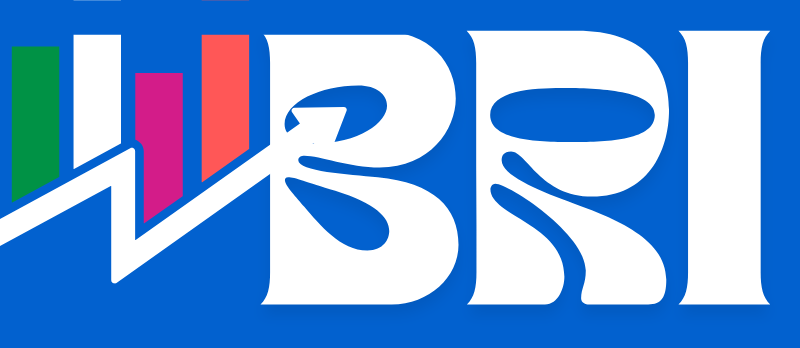Top AI Healthcare Trends Transforming the Future in 2025
In 2025, artificial intelligence (AI) will play a pivotal role in transforming the healthcare industry. From automating diagnosis to enhancing patient care and hospital operations, AI is more than a buzzword now, it’s an actual game changer. As per the latest BRI analysis, AI adoption in healthcare is anticipated to increase by more than 30% YoY in 2025.
Could you please share the leading AI trends that are transforming the healthcare space this year?
Let’s examine the prominent trends of 2025 and discover how they are empowering hospitals, physicians, and patients to operate more efficiently rather than exerting more effort.
Predictive Analytics: Detecting Disease Before It Hits
One of the strongest means through which AI is assisting healthcare providers is by anticipating health concerns before they become life-threatening. With patient information, previous records, wearable device input, and even social determinants of health, AI can pick up potential threats early on.
Example: AI technology is now assisting hospitals to forecast heart attacks days in advance, enabling early intervention.
Key Benefits:
- Early diagnosis
- Reduced hospital readmissions
- Cost savings for patients and providers
AI-Powered Medical Imaging: Diagnostics in Seconds
AI-powered medical imaging has ensured diagnostics are faster and more accurate. Radiologists are now able to identify abnormalities such as tumors, fractures, or infections on X-rays, MRIs, and CT scans in seconds through the use of deep learning algorithms.
BRI Insight: More than 65% of top hospitals in the world will employ AI for more than one imaging activity in 2025.
Personalized Treatment Plans
Two patients are never the same, and AI enables physicians to design treatment plans that are precisely personalized. By processing genetics, medical history, and lifestyle information, AI is able to recommend treatments that will most likely benefit a person.
Example: AI is increasingly tailoring cancer treatment regimens to take into account both tumor genomics and patient response information.
Why This Matters:
- Increased treatment success rates
- Fewer side effects
- Improved patient satisfaction
Virtual Health Assistants and Chatbots
From prompting patients to take medication to responding to health questions, AI-driven virtual assistants are alleviating the workload of healthcare personnel. They’re on duty 24/7 and can handle multiple languages, enhancing access and convenience.
Fact: BRI finds that healthcare virtual assistants experienced a 40% usage increase in 2024 and continue to expand in 2025.
Use Cases:
- Appointment scheduling
- Post-surgery care advice
- Mental health counseling
Hospital Workflow Automation
Billable activities such as billing, patient registration, insurance claims, and report writing consume a big part of hospital staff time. AI automation technology is assisting in freeing up this time to let staff do what matters most—caring for patients.
Result: Hospitals implementing AI for admin tasks have been able to save up to 20% of costs and increase workflow efficiency.
Drug Discovery and Vaccine Development
The drug development process used to take years. With AI, pharmaceutical companies are now discovering drug candidates quicker than ever. In 2025, AI is assisting scientists in simulating chemical reactions, forecasting compound behavior, and even testing early-stage safety virtually.
Highlight: AI assisted in the discovery of new antibiotic compounds in only 18 months—something that previously took 5+ years.
Ethical AI and Trust Building
With increased integration of AI in healthcare, there’s a heightened focus on trust, privacy, and ethical implementation. Laws of 2025 emphasize AI explainability and transparency to the extent that decisions are able to be justified and understood.
Key Areas to Focus On:
- Data privacy regulation (e.g., HIPAA, GDPR) compliance
- Debiasing in AI algorithms
- Engaging clinicians in AI decision loops
Tip: Hospitals increasingly employ “AI ethicists” to promote ethical implementation.
What This Means for Patients and Providers
AI is no longer science fiction, it’s a force to be reckoned with in the healthcare system of 2025. Whether you’re a hospital administrator, doctor, or patient, the advantages are obvious:
- More accurate, faster diagnoses
- Less paperwork and lower costs
- Better patient outcomes
- Greater access to care
Final Thoughts: Embrace the Change, Shape the Future
As healthcare AI continues to develop, it is important to stay up to date. Organizations that adopt AI will enhance care and gain a competitive advantage in an ever-changing environment. And for patients, it means more personalized, proactive, and accessible care than ever.
Call to Action: If you’re a health professional or a tech pioneer, now is the time to see how AI can aid your work. The intelligent future of healthcare is already in our midst.
Connect with our Experts
[embedsocial_schema id=”d4ae80cffae3d938f997111953699a733c8e6f99″]
